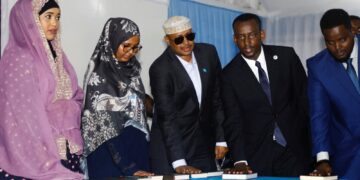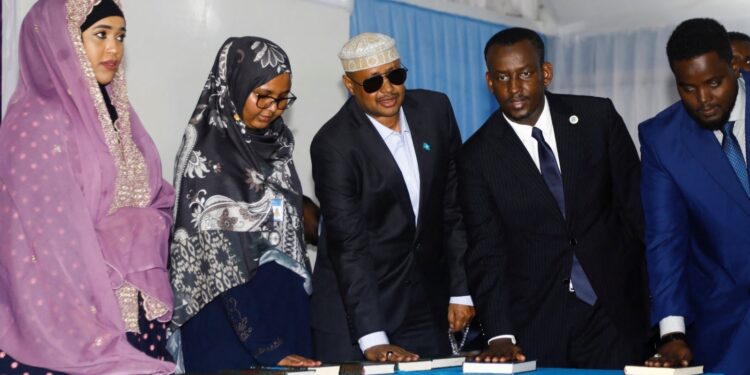By John Ikani
Somali lawmakers are voting to elect a new President ending the convoluted electoral process that raised tensions in the country when the President’s term expired last year without a successor in place.
The members of Parliament and senators voting to choose the President were elected by delegates chosen by clan leaders. It had been hoped that the President would be elected by the people of Somalia under universal suffrage, but this plan was eventually abandoned by the country’s political elite.
All 329 lawmakers of both chambers of Parliament are expected to vote by secret ballot. To win in the first round, a candidate must secure two-thirds of the vote, or 219 ballots. Observers expect a second or even third round of voting for the four top candidates.
Some 39 candidates are standing, including the sitting President Mohamed Abduhallahi Mohamed, known popularly as Farmajo due to his reported love of Italian cheese.
The vote has been delayed by over 15 months, in a period beset by a violent power struggle between the President and his Prime Minister, Mohamed Hussein Roble.
Mohamed’s four-year term expired in February 2021, but he stayed in office after the lower house of parliament approved a two-year extension of his mandate and that of the federal government, drawing fury from Senate leaders and criticism from the international community.
The poll delay triggered an exchange of gunfire in April 2021 between soldiers loyal to the government and others angry over what they saw as the president’s unlawful extension of his mandate.
After months of political infighting, the date was finally set for Sunday to keep in line with conditions set by a $400 million (€384 million) IMF program.
Somali polls are unpredictable, and it appears Farmaajo faces a tough battle for reelection.
The President has been locked in a power struggle with his prime minister, Mohamed Hussein Roble, over control of the government.
Roble is not running for President, but behind the scenes he and other former leaders could play a decisive role in the outcome of the vote.
In addition to Mohamed, major contenders include former presidents Hassan Sheikh Mohamud and Sharif Sheikh Ahmed, as well as former Somali Prime Minister Hassan Ali Khaire and Said Dani, the current president of the regional state of Puntland.
There is only one female candidate, former Foreign Minister Fawzia Yusuf Adan.
Somali elections are notoriously corrupt, and there have been widespread allegations of bribery beginning with the selection of lawmakers.
Whoever wins the election faces the urgent issue of insecurity, with al-Shabab fighters making territorial gains in recent months.
The new President will also have to help ease tensions between regional states competing for limited resources, analysts say.



































